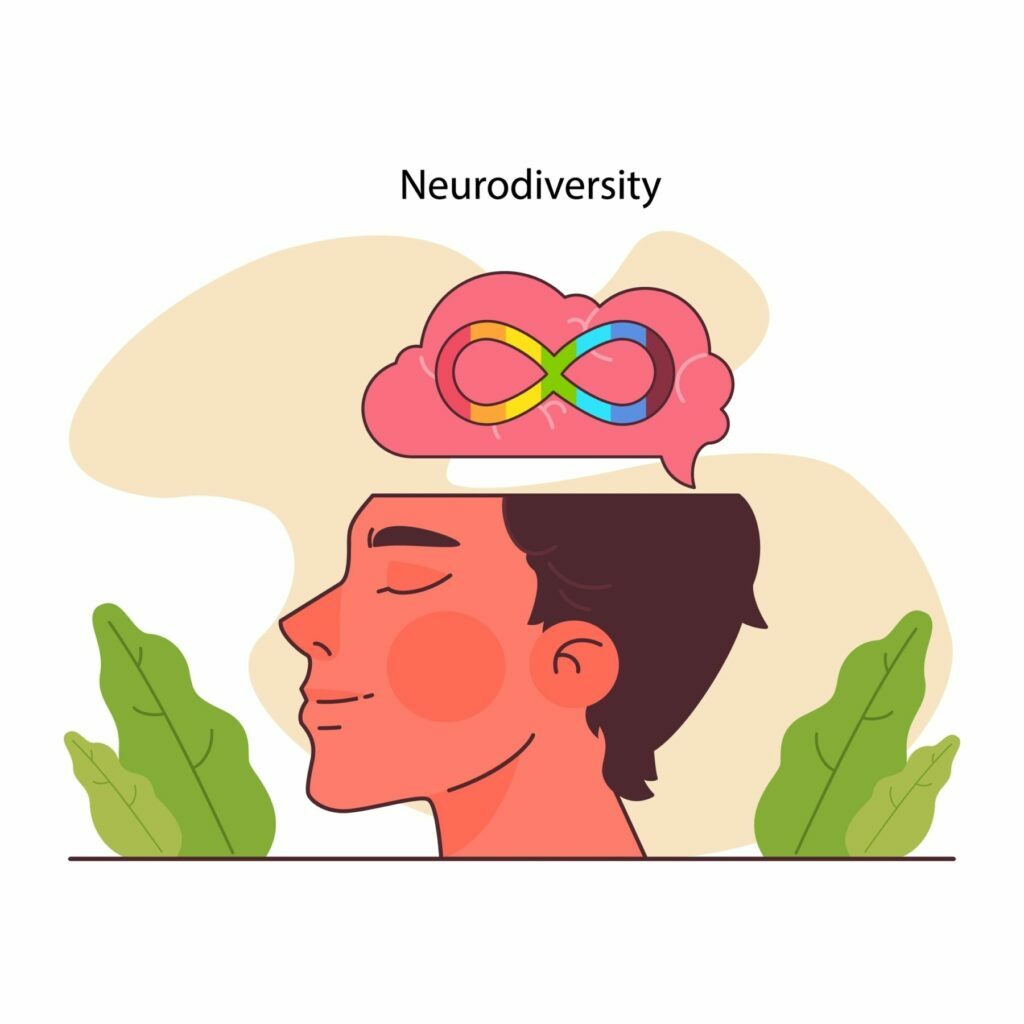Single Again: Rebuilding After Divorce with the Help of Therapy in Chicago

In the vibrant but often challenging landscape of Chicago, relationships, just like the city itself, can undergo significant transformations. The end of a marriage, while seemingly an endpoint, marks the beginning of a new chapter filled with possibilities for personal growth, healing, and rediscovery.
Divorce therapy, a specialized form of counseling, plays a pivotal role in navigating this transition, offering a beacon of hope and a pathway to rebuilding lives post-divorce.
*Note: The term “divorce therapy” will be used to reference therapy after divorce as well as therapy after the end of any significant partnership. We recognize that some relationships, especially LGBT and queer relationships, have not always been afforded the opportunity to marry and do not intend to suggest that the dissolution of these life partnerships differs substantially from the dissolution of legal marriages.
Therapy after divorce can aid individuals, couples, partners, and families in a transformative journey, but positive change requires selecting the right therapist, engaging in effective therapy processes, and embracing the journey towards personal growth and healing.
Initiating Therapy
The decision to start therapy after divorce can be daunting. Yet, overcoming this initial hesitation is the first step toward healing. Finding the right therapist involves thorough research and seeking recommendations to ensure a good fit. This compatibility is crucial, as the therapeutic relationship forms the foundation of the healing process.
Initial consultations provide an opportunity to discuss goals, concerns, and desired outcomes, setting the stage for a journey toward understanding, growth, and reconciliation with oneself and others.
While divorce therapy with a partner may be the right choice, individual therapy may be the best way to facilitate healing and personal growth.
Individual therapy offers a private space for personal exploration and healing, tailored specifically to one’s unique experiences and emotions following a divorce. It enables the person to delve deeper into their thoughts and feelings, uncovering underlying issues that may not surface in a group or couples therapy setting.
Therapy Processes and Approaches
Relationship therapy, whether for couples considering divorce or individuals navigating the aftermath, is a collaborative effort. It involves exploring the underlying issues that have led to the current situation, including individual histories, attachment styles, and family dynamics.
Divorce therapy employs various approaches tailored to the needs of the clients, including collaborative therapy for co-parenting, individual therapy for emotional well-being, and family therapy for healing and rebuilding.
These modalities focus on developing healthy communication skills, resolving conflicts, and establishing clear boundaries, all of which are essential for navigating life post-divorce.
Addressing Specific Challenges
The journey through and after divorce is fraught with specific challenges, such as dealing with infidelity, trust issues, managing blended family dynamics, and navigating financial disagreements. Divorce therapy emphasizes the importance of forgiveness, even if only of oneself.
It often builds insight into one’s attachment style and ways that a person might feel differently about relationships as a byproduct of their experience in dissolving their marriage or partnership. By embracing these challenges as opportunities for growth, individuals can emerge from the process more resilient and self-aware.
Supporting Children Through Divorce
Divorce affects not just the married individuals but also their children. Divorce therapy includes strategies for supporting children through this difficult time (or this may be addressed in a family therapy setting), helping them process their emotions and adjust to their new reality.
Activities such as asking intentional questions, creating personal history timelines, and drawing can facilitate this process, providing children with the tools they need to express and work through their feelings. Co-parenting as a focus of therapy after divorce is also essential for the healthy dissolution of many relationships, while still prioritizing the needs of the children in the family.
Tip for Getting the Most from Divorce Therapy and Beyond
- Lay a Foundation for Your New Beginning – The first step towards rebuilding your life after divorce is to envision what you want your life to look like moving forward. Therapy for divorce is frequently used to explore this vision. It may involve setting both short-term and long-term goals, which can provide direction and purpose during a time that might otherwise feel overwhelming and aimless.
Begin by writing down what you want to achieve in the next few months and in the coming years. These goals could range from career ambitions to personal development milestones, such as improving emotional well-being or building new relationships.
Further, one may be encouraged to visualize their goals as already accomplished; imagining how achieving these objectives will impact one’s life and how one will feel. This practice can be incredibly motivating and can help to clarify what changes need to be made to align one’s current reality with your desired future.
By focusing on what you truly desire, your daily actions and decisions will naturally start to align with your goals. This alignment is crucial for making consistent progress and moving closer to the life you envision for yourself after divorce.
- Embracing Forgiveness to Move Forward – Anger and resentment are natural emotions to experience during and after a divorce. While these feelings are valid and part of the grieving process, they can also hinder your ability to move on if not addressed.
Forgiveness does not mean condoning or excusing your ex-partner’s behavior, nor does it imply reconciliation. It is about freeing yourself from the burden of anger and making space for more positive experiences in your life.
Viewing forgiveness as a selfish act can be helpful. It’s about giving yourself permission to let go of negative emotions that no longer serve you and choosing to prioritize your emotional well-being.
- Don’t “Pain Shop” – In the digital age, maintaining distance from an ex-partner can be more challenging than ever. The temptation to check up on them through social media or other forms of technology can lead to unnecessary pain and hinder your healing process.
It’s important to take proactive steps to protect your emotional well-being by disconnecting from your ex-partner’s online presence. This might mean blocking or unfriending them on social media platforms to avoid the temptation of “pain shopping.”
- Find Strength in Vulnerability– Isolation can amplify the pain of a divorce, making it critical to seek support from those around you. Whether it’s friends, family, or a therapist, leaning on others can provide comfort and guidance.
Remember that support can come in many forms and from various sources, but requires you to have a willingness to be vulnerable with your thoughts and feelings and enable someone else to support you. Exploring different support options can help you find the right fit for your needs and preferences, whether it’s individual therapy or group therapy.
- Recognize that Discomfort is Okay – Stepping out of your comfort zone – not just in sharing vulnerably with others, but also in other ways – is essential for personal growth, especially after a significant life change like divorce. Trying new activities can lead to the discovery of passions and interests of which you were previously unaware.
While embracing new experiences can be intimidating, it’s important to remember that discomfort is temporary. Try reframing the discomfort as growth (like soreness in your body after exercise if you haven’t exercised in awhile). Each new challenge you overcome can boost your confidence and resilience, helping you to rebuild a fulfilling life after divorce.
Finding the Right Therapist
The effectiveness of therapy in navigating divorce and rebuilding lives largely depends on the therapist’s expertise and approach. Finding the right therapist requires considering their specialization in couples counseling and divorce therapy, verifying their credentials, and assessing the fit based on their experience and approach.
Practical considerations, such as budget, schedule, and insurance coverage also play a crucial role in this decision-making process.
Getting Started with Therapy
For those considering therapy as a means to navigate the complexities of divorce and rebuild their lives, we encourage you to reach out! Therapy offers unique opportunities for relationship rebuilding, personal growth, and healing from the emotional wounds of divorce.
By engaging with a therapist, individuals, couples, and families can embark on a journey toward understanding, acceptance, and renewed hope for the future.
Divorce, while a challenging and often painful experience, also presents an opportunity for profound personal growth and healing. Therapy plays a critical role in navigating this transition, providing the support, guidance, and tools necessary for individuals, couples, and families to rebuild their lives with resilience and hope.
By acknowledging the complexities of relationships and divorce, and embracing the therapeutic journey, those affected by divorce can find healing and a renewed sense of purpose in their lives post-divorce.
This blog is made for informational and educational purposes only. It is not medical advice. The information in this blog is not intended to (1) replace a one-on-one relationship with a qualified licensed health care provider, (2) create or establish a provider-patient relationship, or (3) create a duty for us to follow up with you.



